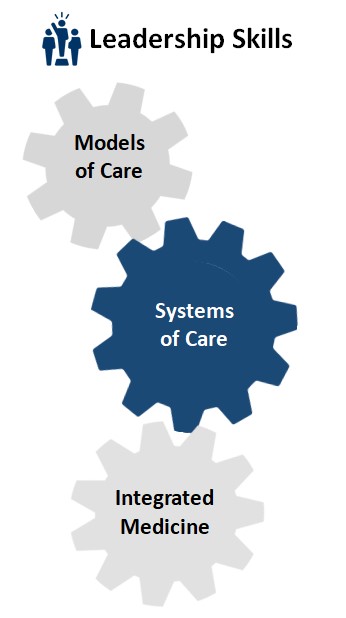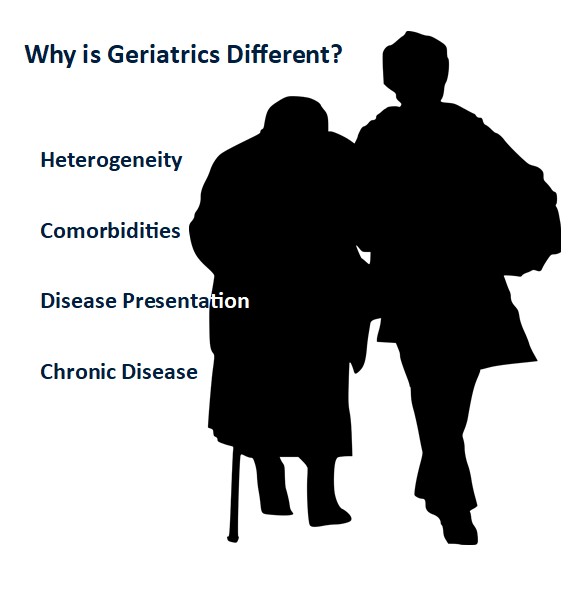What is a Geriatrician…
In addition to promoting the functional status, independence and well-being of older adults, geriatricians are uniquely known for collaborating with interprofessional teams including nurses, pharmacists, physician assistants, social workers, and many others who work together to coordinate complex care for older adults and their caregivers.
A challenge of being a geriatrician is practicing within a relatively “evidence-free” world. Even though older adults are increasingly being included in research studies, much of our clinical practice incorporates a healthy appreciation of the art of medicine, given the relative lack of evidence-based guidelines applicable to our older adult population, especially those older than age 85. Therefore, as geriatricians, we value the incorporation of patient preferences and priorities while we attempt to individualize our recommendations by weighing potential risks, benefits and burdens of treatment options for each particular patient. Additionally, geriatricians are adept at assessing and managing a myriad of geriatric syndromes, including mobility impairment, falls, dementia, delirium, polypharmacy, and urinary incontinence, among others, by regularly employing the 5Ms of Geriatrics in patient encounters: what Matters (patient preferences), Medication, Mentation (cognition), Mobility and Multimorbidity.
As a geriatrician, one can work in a number of settings including, but not limited to, private or group practices, long-term care facilities, post-acute care settings, innovative geriatric community models of care, hospitals/health systems, and academic medical centers. Exposure to Geriatrics provides a unique opportunity for individuals to gain further insight into challenges in transitions of care, different models of geriatric care delivery, and reimbursement mechanisms. This knowledge and understanding is instrumental providing a leg up for anyone with interests in an eventual leadership position, promoting healthy aging in clinical, research, medical education and /or public policy arenas.
Learn more about Geriatric Medicine Fellowship at Michigan Medicine.
Dr. Alan Dengiz, retired faculty member, discusses his decision to pursue a career in Geriatrics.
Professional Activities that set apart a Geriatrician from the General Primary Care Physician:
- Provide patient-centered care that optimizes function and/or well-being
- Prioritize and manage the care of older patients by integrating the patient’s goals and values, comorbidities, and prognosis into the practice of evidence based medicine
- Assist patients and families in clarifying goals of care and making care decisions
- Prevent, diagnose, and manage geriatric syndromes
- Provide comprehensive medication review to maximize benefit and minimize number of medications and adverse events
- Provide palliative and end-of-life care for older adults
- Coordinate health care and healthcare transitions for older adults with multiple chronic conditions and multiple providers
- Provide geriatrics consultation and co-management
- Skillfully facilitate family meetings
- Collaborate and work effectively as a leader or member of an interprofessional healthcare team
- Teach the principles of geriatrics care and aging-related healthcare issues to professionals, patients, families, healthcare providers, and others in the community
- Collaborate and work effectively in quality improvement and other systems-based initiatives to assure patient safety and improve outcomes for older adults
Source: Leipzig RM, e. (2019). What is a geriatrician? American Geriatrics Society and Association of Directors of Geriatric Academic Programs end-of-training entrustable profess... - PubMed - NCBI. [online] Ncbi.nlm.nih.gov. Available at: https://www.ncbi.nlm.nih.gov/pubmed/24749846 [Accessed 11 Jul. 2019].



